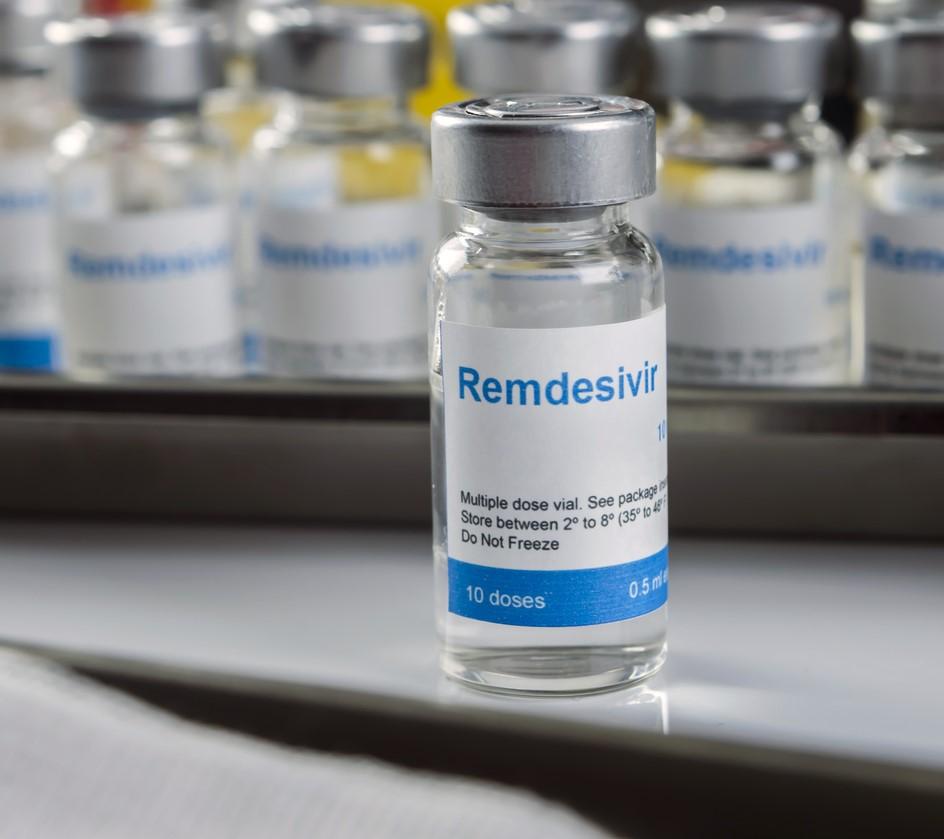Remdesivir, the only antiviral fully approved for COVID-19 treatment by the US Food and Drug Administration (FDA), was associated with a longer hospital stay yet no improvement in survival rates, according to a real-world observational study of military veterans today in JAMA Network Open.
The researchers suggest that the prescribed regimen (5 or 10 days) may have led to longer hospitalizations as patients finished the treatment course, and a related commentary agrees.
Increased hospitalization time
The study included 5,898 US patients admitted to 123 Veterans Health Administration hospitals from May 1 to Oct 8, 2020, during the drug's emergency use authorization (EUA) period, before it was formally approved by the FDA.
Four in 10 patients (40.3%) received remdesivir, of whom most were men (94.3% vs 93.7% of those who never received the drug), older (67.8 vs 67.0 years), or White (59.6% vs 54.4%). They were also more likely than non-remdesivir patients to have chronic obstructive pulmonary disease (37.4% vs 32.0%) or be sicker at admission.
The researchers were able to match 1,172 remdesivir patients (about half), with standardized differences less than 10% for all factors.
Similar to the randomized clinical Adaptive COVID-19 Treatment Trial (ACTT-1), which helped the drug gain full FDA approval, data showed no statistically significant differences in 30-day mortality (12.2% of remdesivir recipients died vs 10.6%). However, ACTT-1 showed a decrease in recovery time—10 versus 15 days—while this study showed a median hospital stay of 6 days for those on remdesivir, compared with 3 days for those not taking the antiviral.
"Our examination of days from matching to hospital discharge showed a shift in discharges from days 1 to 4 among controls to day 5 or 6 among remdesivir recipients, in association with large numbers of patients completing 5-day remdesivir courses," the researchers write.
"These findings suggest that clinicians may have not discharged some patients who were receiving remdesivir until they completed a 5-day course."
No instructions to stop treatment
Remdesivir's main benefit, as the researchers frame it, is better recovery time for patients with severe COVID-19. (Its null effect on mortality is the main reason why the World Health Organization does not recommend it, the researchers add.)
In ACTT-1, participants stopped treatment after showing improvement. During the time of this study, though, the FDA's EUA fact sheet and the Veterans Affairs pharmacy benefits management's instructions highlighted a 5-day or 10-day regimen without explicitly saying clinicians could stop treatment early, notes Gio J. Baracco, MD, an infectious disease specialist at the University of Miami, in the commentary.
The study also took place when most severely ill COVID patients received remdesivir: Patients that were able to be matched tended to have less severe illness and a lower propensity for the intervention. "Had patients who were more severely ill and their propensity score–match controls with more severe illness been included, the association of remdesivir with length of stay might have been diluted," Baracco writes.
"The real-life application of a drug promising to hasten discharge from the hospital as its primary beneficial outcome must include an assessment of how easy it is to do so and make it clear that once a patient reaches that point, they can discontinue the drug," he concludes. "The paradoxical findings in the study by Ohl et al compared with the study used for its authorization illustrate this point very clearly."




















